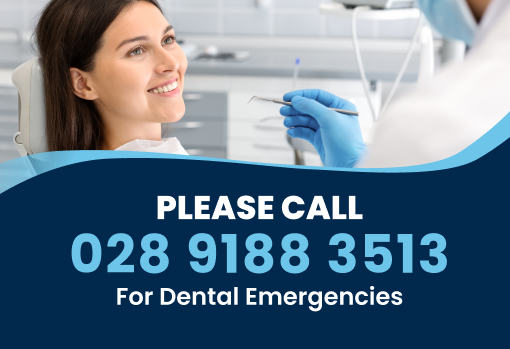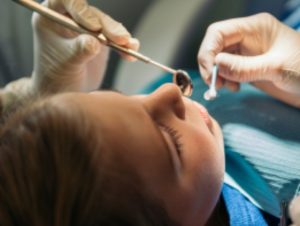A dental hygienist works alongside dentists to offer ‘preventative’ dental health care. In other words, they work with patients to provide ‘deep clean’ scale and polish treatments. They also offer advice on oral health and teeth cleaning techniques to help ward off cavities and other dental problems. The dental hygienist is well positioned to look out for early signs of larger issues and potential problems. This enables them to alert the dentist and patient and help support diagnoses. Their early intervention also means that treatment can start sooner, rather than later. This can be critical in some medical conditions.
Nervous about visiting the dental hygienist? Don’t be!
Many people feel anxious or frightened at the prosect of visiting a dental surgery. However, regular check-ups are vital for dental hygiene. Including an appointment with the dental hygienist in your oral health care routines can actually help allay fears, as they can get rid of a lot of the plaque and bacteria that lead to cavities and other painful issues. The advice they give can also help you keep your teeth in better condition at home, and so give you more confidence when faced with your next dental check-up.
How to prepare in advance
Ion order to get the most out of your dental hygienist appointment, it is important to make some preparations beforehand. Always double check your appointment date and time. You can be charged full price if you miss an appointment, or do not give enough notice when cancelling or trying to rearrange. Always brush and floss your teeth before your appointment, and avoid any strongly smelling food or drink. If you wear a dental appliance, bring it with you. The dental hygienist may want to check that it is not causing any discomfort or problems for you. Write down any questions you have, as you may forget to ask them if you are nervous or get distracted during the appointment.
What will the dental hygienist need to know about me and my teeth?
If you are new to the practice, the dental hygienist will need to take a full medical history from you. This is to highlight any potential issues that may affect their treatment. Take a list of regular medications with you, as this will also be useful information to provide. You will then be asked about your normal tooth brushing routines. For example, whether you use an electric or manual toothbrush, how you go about flossing, how often you brush your teeth and what type of toothpaste and mouthwash you prefer. It is important to be honest, as your dental hygienist will be better placed to help you. They will not judge – they will have doubtless seen it all before!
What happens at the appointment?
After you have provided all your relevant details, the examination will begin. The dental hygienist will check your teeth and gums, looking for irregularities. This includes unusually high build-up of plaque, cracked or damaged teeth, signs of gum disease, receding gums etc. Next, you will receive a professional clean, called a scale and polish. The scaling helps remove the plaque, particularly in the harder-to-reach areas of the mouth. You remain in charge throughout the procedure and can alert your hygienist at any time if you feel uncomfortable, or want a short break. The dental hygienist will then polish your teeth, cleaning them and smoothing the surface of the enamel to make it harder for bacteria to cling on. This also helps to remove stains, such as coffee, tea or red wine.
Aftercare – how to make the most of the treatment provided
After the appointment, you should leave with your teeth and mouth feeling really clean. To maximise the feeling and help keep things as healthy as possible, follow up on any advice that you have been given. If you have been recommended any new products, purchase or order them straight away before you forget. Practise any new techniques that you have been shown when you next brush your teeth. It is also a good ideal to book your next dental hygienist session straight away before you leave the practice. That way, you won’t forget, and you can normally have a better selection of available dates and times by booking earlier in advance.





